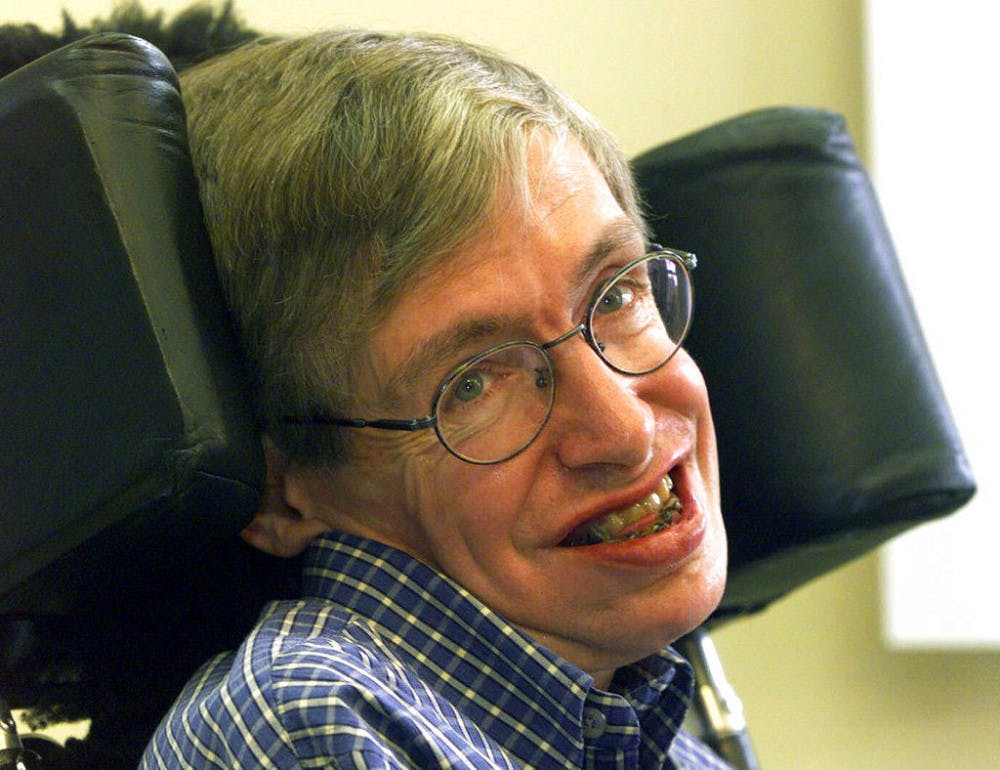UF Professor Pierre Ramond remembers sitting down with Stephen Hawking at a California Institute of Technology cafeteria in 1979.
Hawking, who frequented the Caltech campus, had asked to meet with Ramond, now a distinguished professor of theoretical physics. They spoke for hours about relativity.
“One of the worst experiences in my life,” he said.
By the end of the conversation, Ramond was exhausted. He had never met anyone like Hawking, who could hold a conversation about theories of the universe but needed assistance to eat. He went home and fell asleep. Hawking was “an extreme of what human beings can do” until his death, said Ramond, who was lucky enough to have met the world-renowned theoretical physicist.
Hawking died peacefully in his Cambridge home Wednesday at the age of 76, according to a public statement by the University of Cambridge. Hawking coincidentally died the same day as Albert Einstein’s birthday and Pi Day, which celebrates the mathematical constant of pi, or 3.14.
Ramond met Hawking about a decade after the well-known scientist had been diagnosed with Lou Gehrig’s Disease, a slowly progressive debilitating disease. He was still capable of speech at this time, and began bombarding Ramond with very high-level questions.
Other members of the UF physics community reflected on Hawking’s life as well Wednesday.
In the morning, Derek Klein, a UF astrophysics senior, sensed shock in a study lounge in the New Physics Building as the news sunk in, he said.
“It’s definitely bittersweet,” the 31-year-old said.
Katia Matcheva, a UF physics associate professor, began her electromagnetism lecture Wednesday morning by showing a video clip commemorating Hawking and reminding her class of the many positives that came from his life. She said his contributions to humanity will live on and his passion is inspiring for anyone, even those not in science fields.
“He is not gone,” Matcheva said. “He overcame such a debilitating health problem that he had and lived a very meaningful and a very full life.”
Contact Elliott Nasby at enasby@alligator.org. Follow him on Twitter at @_ElohEl.
In this Wednesday, July 21, 1999 file photo Professor Stephen Hawking smiles during a news conference at the University of Potsdam, near Berlin, Germany. Hawking, whose brilliant mind ranged across time and space though his body was paralyzed by disease, has died, a family spokesman said early Wednesday, March 14, 2018.





![Photo of the missing Leachianus “Leachie” gecko. [Photo courtesy of Mike Southwick]](https://snworksceo.imgix.net/ufa/907bd92a-0b29-40eb-a5fb-d7db7cf98b2f.sized-1000x1000.jpg?w=1500&ar=16%3A9&fit=crop&crop=faces&facepad=3&auto=format)
